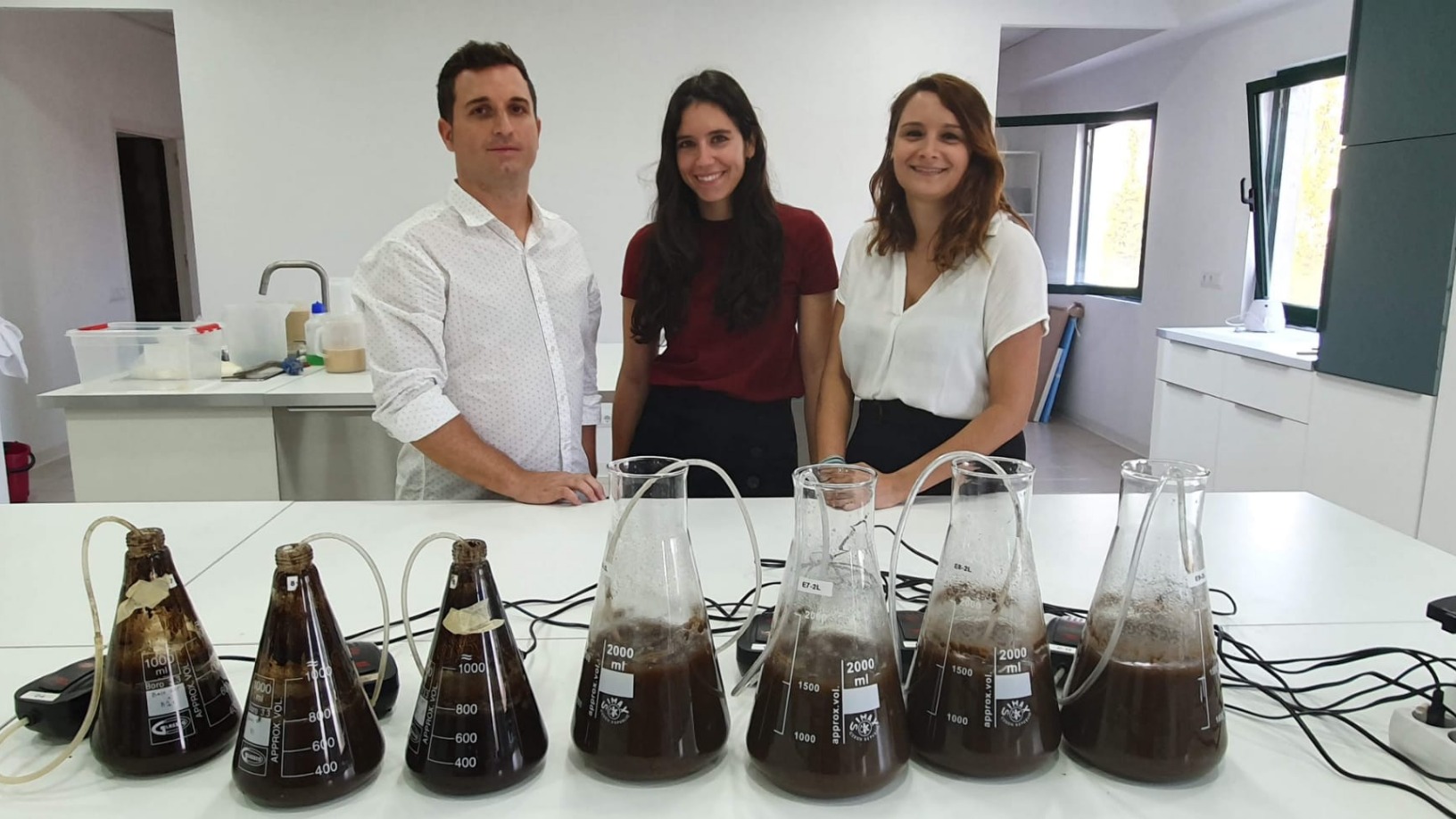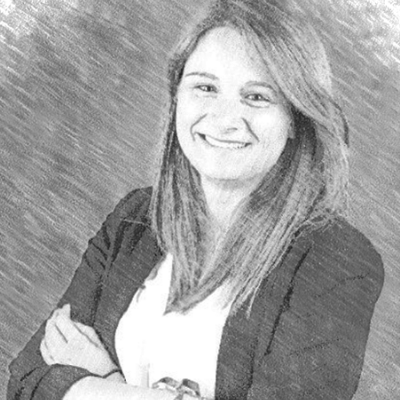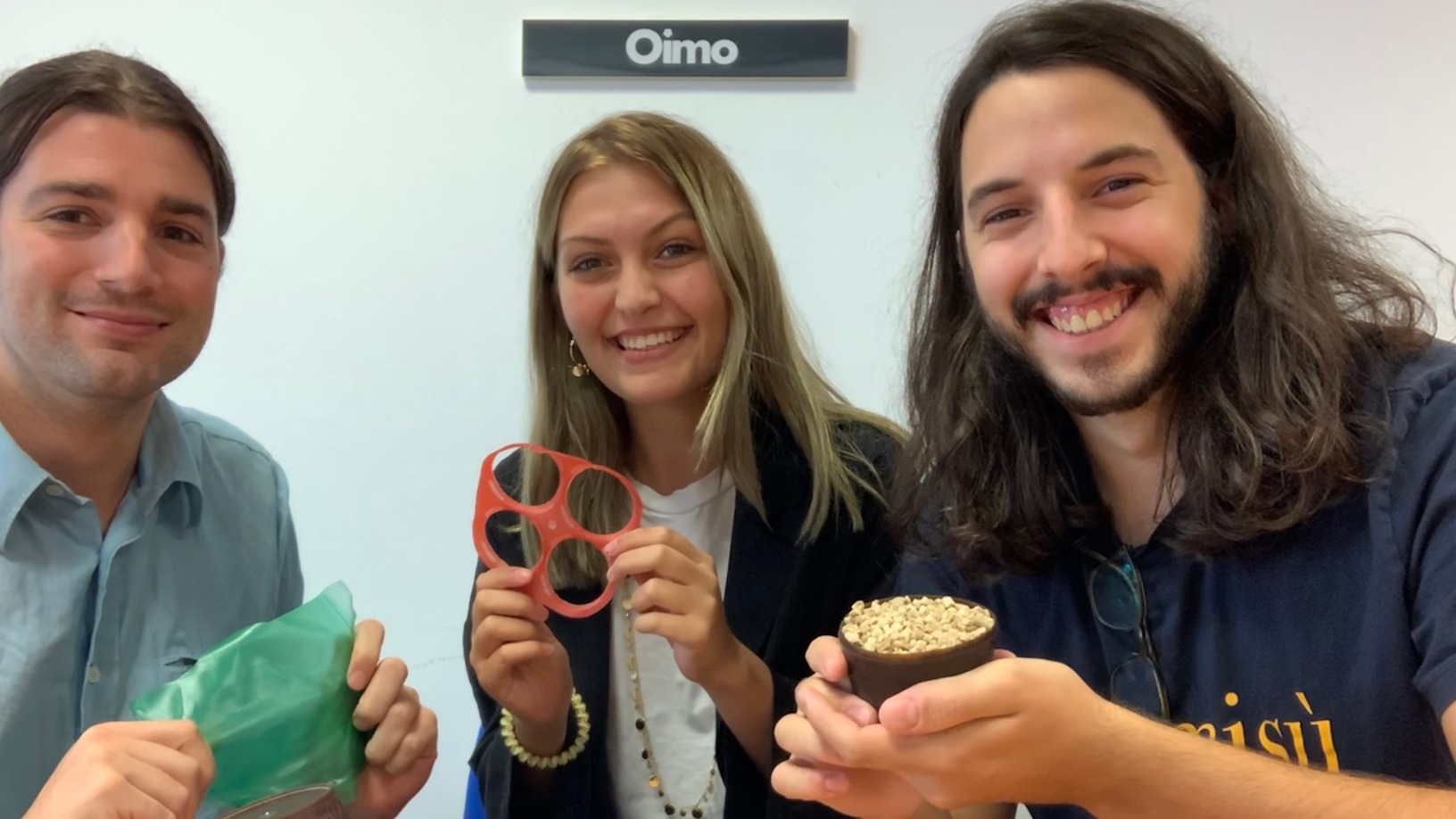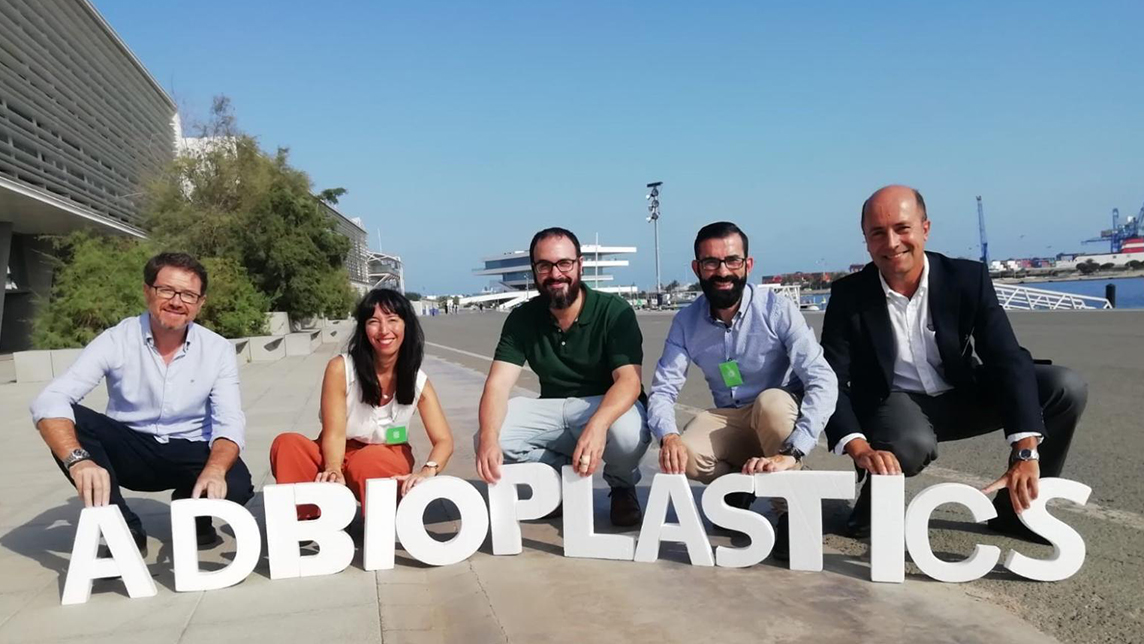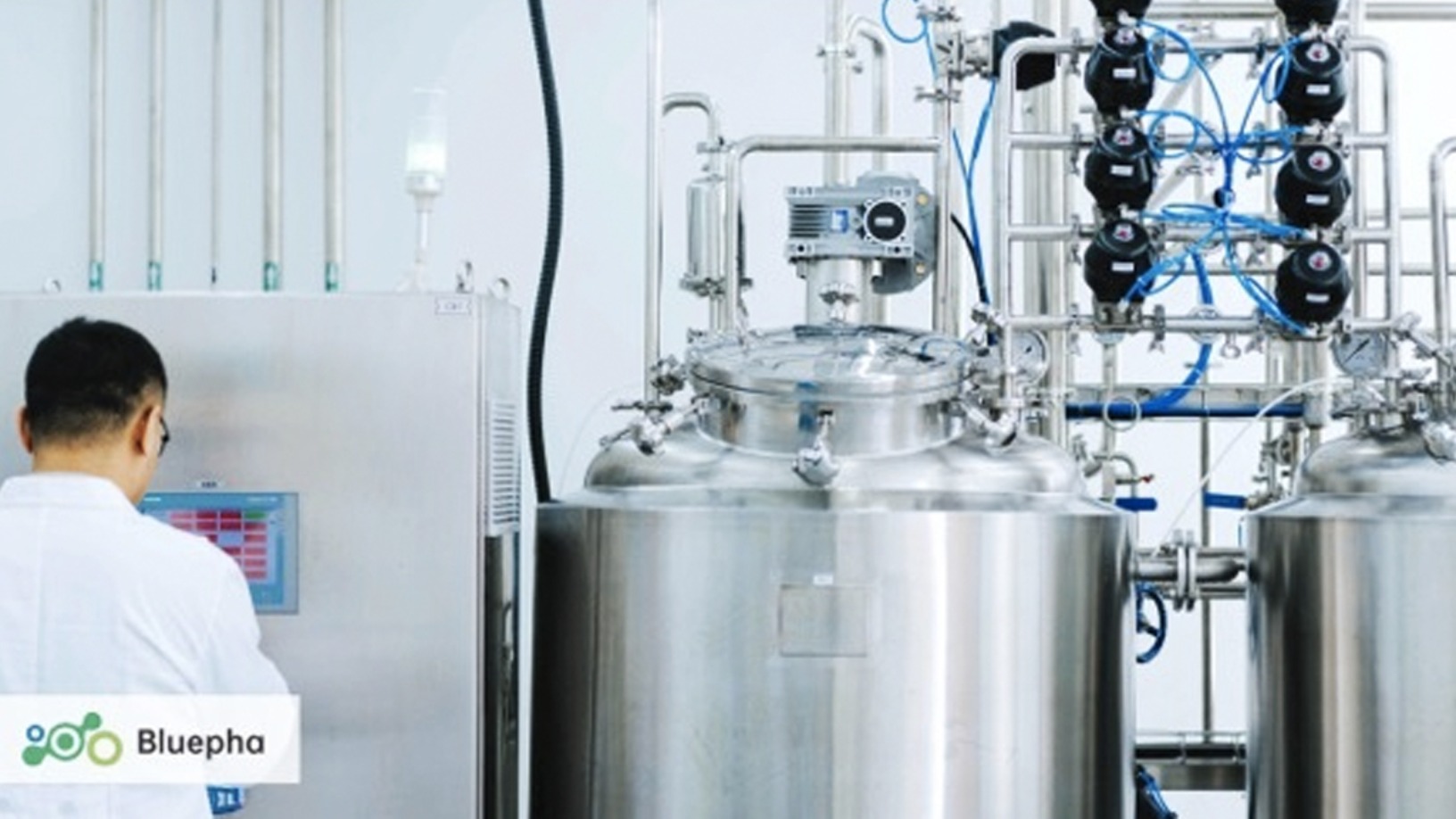When the co-founders of Barcelona-based biotech startup VEnvirotech got together in 2017, they didn’t just want to create bioplastics that were 100% biodegradable. They wanted to build a highly-scalable and circular business model that would enable the production of bioplastics onsite from organic wastes generated by large corporations.
VEnvirotec’s technology comprises the company’s trademarked mobile smart-waste container, the VE-Box, and its contents – bioplastic-producing, garbage-consuming bacteria. The bacteria eliminate 97% of organic matter and produce the raw ingredient for the bioplastic polymer Polyhydroxyalkanoate (PHA).
CEO and co-founder Noelia Márquez Alfaya told CompassListat an interview that, besides the technology, what really sets VEnvirotech apart is its business model in which the company installs its VE-Box onsite at large corporations that are producing high-volumes of organic waste and then charge by the amount of waste reprocessed.
"We provide a circular waste-management system that is attractive to corporates in terms of the bioplastic end-product they can use and as a solution to worrying about what to do with the majority of their waste,” said Márquez, an industrial engineer.
Though full commercialization is not slated until sometime in 2022, the startup has secured paid local pilots with two major companies: Nestlé, and Catalonian supermarket chain Bon Area. Another, with Spanish dairy giant Calidad Pascual, is due to begin soon.
VEnvirotech was founded In April 2018 and soon afterwards joined the Repsol Foundation accelerator where it gained access to a panel of expert tutors and the opportunity to do a pilot at Bon Area. The raw bioplastics that it produced after just one month received positive feedback from Repsol and even some payment. Soon after that business angels provided undisclosed funding to build the VE-Box, now manufactured by industrial partner GDO.
In 2019, the company received €2m in seed funding from the Spanish entrepreneurial family, the Gassós, for production facilities outside Barcelona. Among the accolades VEnvirotech has garnered to date are ´Most Innovative Startup at the MIT Enterprise Forum Spain 2020 investment event, the EU’s European Social Innovation Competition in 2019 and Barcelona’s Investment Forum 2019.
From waste to PHA
The waste-consuming bacteria was the brainchild of CTO and co-founder Patricia Aymà Maldonado, a biochemist, whose master's thesis at the University of Barcelona in 2016 was on the production of PHA via specially cultivated bacteria. The following year, Aymà met Márquez and industrial engineer Jordi Margarit Aris, now VEnvirotech's COO, at a local chapter of a youth entrepreneur program run by Santander Bank, at which Aymà's tech won the program's national pitch competition.
“On the first day, Patricia explained bioplastics, of which I had no previous knowledge,” recalled Márquez. “I was immediately sold on the potential of making a completely biodegradable plastic from waste after seeing the environmental damage caused by plastic.” The trio spent months working on developing the VE-Box. Margarit engineered the tech and Márquez developed the business model.
The VE-Box is an automated mobile waste container in which biotransformation takes place under ideal conditions maintained by cloud-control and sensors within the container so customers do not need to worry about anything other that connecting it to water, power supply and a drain. Inside the VE-Box, there are two bacteria cultures: one eats the waste to create leftovers, which is consumed by the second bacteria that accumulate the bioplastic ingredient PHA inside them.
“[The bacteria] consume as much of the ingredient as possible because they are programmed to 'think' they will be hungry later,” Márquez said. "When they eat, they accumulate the maximum amount of bioplastic possible. When the bacteria is full of bioplastic, we dry them out and are left with a type of dough.”
The transformation into PHA is extremely fast, taking less than one day in the VE-Box's optimised temperature, pH and humidity conditions, while the organic waste in the container is reduced by 70%. “The process is entirely organic and results in a completely biodegradable material. We just aid the conditions and types of bacteria needed to make them accumulate the most PHA possible,” Márquez added.
When left unformulated, the material completely biodegrades in as little as 2–3 weeks, a vast improvement on other plastic substitutes, including the most commonly-used polylactide (PLA),which takes at least 80 years to naturally biodegrade. In fact, PHA biodegradation is so rapid that in order to be suitable for practical use it has to be formulated to extend its life to up to two years.
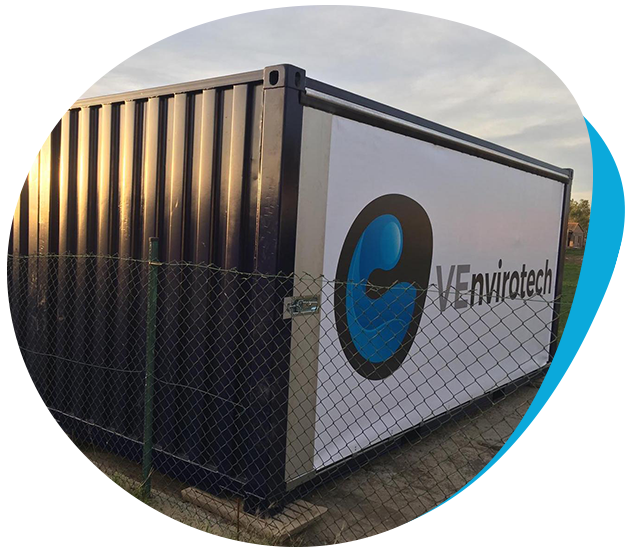
From PHA to PHBV polymer
The second part of the technology is the extraction of the PHA, which VEnvirotech now performs at its plant. The extraction technology is called VE-Out. The skin from the bacteria is removed. Then, it is turned it into a liquid using a dissolvent before filtering it and removing the skin. A condensing agent (the opposite of a dissolvent) is then applied to get the plastic to precipitate, resulting in recuperation of 97% of the material.
The amount of PHA produced depends on the type of organic waste processed and its ability to retain water, with productivity ranging from 3–6%, in the case of sludge, to 20–25% in the case of lactates, carnic waste and pastries. The resulting PHA is a raw product that needs to be processed for end-use.
“You can make polypropylene from the PHA and from that there are a thousand other possible biodegradable formulae and you have the material to inject into moulds,” Márquez said. “Polyhydroxybutyrate (PHB) is probably the best known, but has the major disadvantage of being very fragile. So we are focusing on the PHBV polymer, which has extra flexibility and is suitable for use in conventional machines without any problem.” PHBV is a biodegradable and non-toxic bioplastic suitable for multiple packaging uses.
Highly versatile material
VEnvirotech is currently using more than 40 types of organic waste from cereal husks to animal and human waste. For biotransformation to successfully occur, the composition must be constant, either by using a single ingredient or a stable mix of waste.
“Our idea is for the material to be used in the numerous applications suitable for polypropylene and our formulation allows modification for later biodegradation because the normal process is too fast for many uses,” Márquez said. She compares the formulated bioplastic to flour in that “its strength varies massively according to the formulation, just like flour in terms of its baking uses.”
The most common use of PHBV is in packaging but in the long-term it can potentially be used in biomedicine and biopharma. “Agrofood processors have a common waste product that we use to produce our raw material and they also use a lot of plastic, a key contaminant worldwide. As a circular economy company, we necessarily need to close this circle,” Márquez said.
Another advantage of VEnvirotech's model is the fact that the startup avoids transportation of waste by installing its VE-Boxes at the companies producing it where it can process most types of organic waste. It is also a process that can be easily managed more cheaply remotely, unlike most other bacterial cultivations.
“When you cultivate bacteria, conditions usually need to be sterile to stop other types of bacteria from getting in,” Márquez said. “Our process does not require this, as we create the ideal conditions for our bacteria only. Other invading bacteria cannot mutate and, in fact, die because they are not in their normal living conditions.”
Demand-led expansion
With an EU-wide ban on some single-use plastics having come into force this year, scalable bioplastics solutions are well-placed to profit. VEnvirotech's local pilots with Nestlé, the world's largest food and beverage company, and Bon Area are earning money for the startup, as will the imminent Calidad Pascual trial and another to be announced in the Madrid region. The startup is gearing up for another funding round prior to full commercialization next year.
VEnvirotech’s growth plans include handling large-scale waste management for agro producers, supermarkets and others generating organic waste that are large plastic consumers, as well as selling unrefined bioplastic in bulk. “Large agro producers generate 60–100 tons of organic waste a year and we need to be able to process their waste by first trying to reduce the amount as much as possible and then modularizing it,” Márquez said.
The company aims to expand according to the demand for the type of waste it manages and not by geographical region. Dairy, carnic waste, pastry, sludge, natural fibers and agrowaste are the types at which the startup excels. The company is also looking to build partnerships across Europe to handle waste for companies with pan-European operations, with France being the principal market of interest at present.
“I don't know if it's the new plastic ban or growing consciousness, but in our three years we have had a huge acceptance from the private sector,” Márquez said. “In order to convince corporates to change to bioplastic, besides legislation, we also need to show that bioplastic properties are the same and that they can be competitively priced.
"We cannot be competitively-priced at the pilot stage but if we produce en masse then we could be only slightly more expensive. Above, all, we also need to realize that current plastic prices are so cheap because of all the problems they cause. If we factor in those costs in terms of its waste and environmental problems, then is it even really cheap?”
